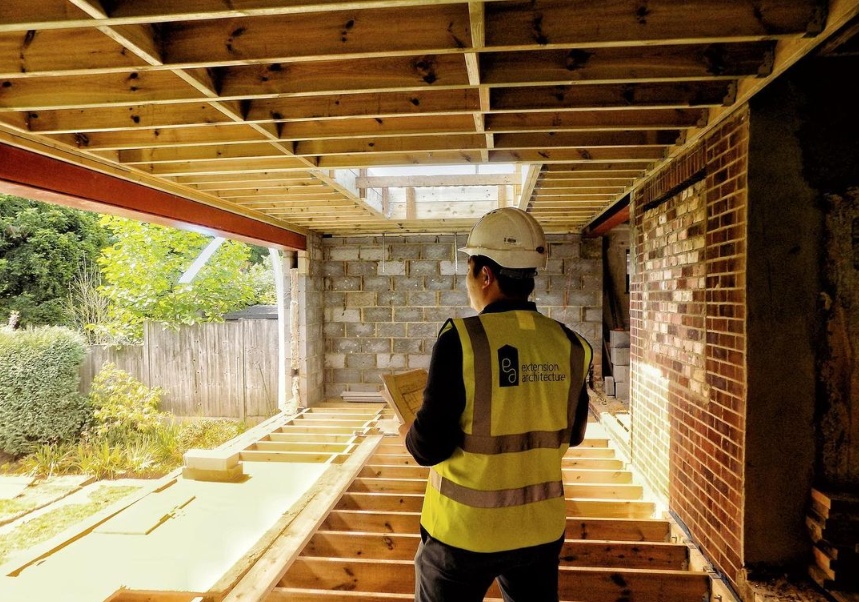Use Class E License: Regulations and Licensing for Commercial Properties
In this article we shall unravel all that you need to know about Use Class E, including the changes in regulations and licensing, laws, and rules that may potentially impact your business.

From an economic perspective, the Covid pandemic without a doubt had a widespread impact on all classes of people and businesses. In 2020, though the then government had announced changes to commercial Use Class E License, the tremors have remained until recently. Oxford Street, a popular and largely visited shopping destination in Britain experienced a 11% dip in business during March, three years post-pandemic.
The same year, most parts of UK’s commercial hotspots were left barren. While Central London remained 13% empty, the Oxford Street suffered with 16% vacant buildings, and the UK averaged with 14% hollow spaces. This year in 2025, the total spend on luxury retail has clocked 12%, which is much lower than what it was during the pre-pandemic times.
The situation was bleak, not just for the high street, but for the whole commercial, business, and service diaspora of the United Kingdom. All these hinted at one thing; the need to save the high street and other commercial businesses.
Creation of Use Class E License
In response to the damaging ramifications on commercial businesses caused by the pandemic, the then government introduced a new category to use classes. During September 2020, Use Class E was created to allow businesses and services of all kinds to adapt to changing situations such as market demands and consumer behaviour.
This was a welcome move by the government to reverse the effect of the pandemic, especially at a time when businesses experienced a dip in sales.
Understanding Use Class E Order
The Use Class E Order has been one of the biggest decisions taken by the British planning system in recent years. The decision taken by the government was to merge classes such as shops, professional & financial services, cafes and restaurants with Class B1 businesses such as fitness centres, day care centres, etc.
Though it was a lesson learnt from the ill effects the pandemic had caused, the primary aim for this amalgamation is to minimise legal distinctions among different use classes and thus provide businesses with increased flexibility and equip them to respond quickly to changing situations.
As of September 2020, Use Classes such as A1, A2, A3, D1 (some parts), D2, are all now categorised under ‘Class E’ which refers to Commercial, Business & Services.
Use Class A1: This includes Shops such as, retail warehouses, salons & hairdressers, travel & ticket agencies, post offices, pet shops, showrooms, dry cleaners, domestic hire shops, and funeral directors.
Use Class A2: Financial institutions, banks and building societies, employment agencies, and other professional services.
Use Class A3: Food & Drink joints, restaurants, cafes, snack bars.
Use Class D1: Only non-residential institutions
Use Class D2: Only assembly & leisure
‘Class E’ Category List
Shops, retail, financial services, cafes, restaurants, professional services, Medical & Health services, creches, day nurseries, R&D facilities, Light Industrial use facilities, spaces used for indoor sport, gym, recreation or any fitness centre.
So, combining different use classes into a single use class will imply that from September 2020, planning permission will no longer be required for any owner planning for a ‘change of use’ of business within the same class. This is great news for commercial business owners who were left reeling either because of the ill effects of the pandemic or because of political or unnatural developments.
‘Sui Generis’ List
In view of protecting certain businesses from getting converted to other buildings or utilities, the government made certain use classes as ‘Sui Generis’ (unique). So, if your business comes under the ‘Sui Generis’, you may have to apply for planning permission if you want to change the use of your business.
Nightclubs, Cinema halls, hot food takeaways, betting shops, hostels, casinos, petrol stations, HMOs (up to 6 or more occupants), concert halls, dance halls, pubs, drinking joints are all now classified under ‘Sui Generis’.
Use Class E: Regulations and Licensing for Commercial Properties
Now that we have a fair understanding about why and how different use classes were brought into one umbrella of Class E, let us now understand Class E from a licensing and regulations perspective.
Licensing and Permits for Use Class E
It is now quite clear that if you are either a commercial establishment, a business enterprise or a service-oriented establishment, and come under ‘Class E’, you wouldn’t need to apply for planning permission to plan for ‘change of use’. However, you are not exempted from complying with licensing or other permit related requirements for Use Class E properties.
- Food Hygiene Certificate
If you are a Class E property and are into a food business such as running a restaurant or a cafe, then you will have to apply for a food hygiene certificate. Food hygiene certificates though do not usually undergo expiry in the UK, it is recommended that the certificate is renewed or updated every three years. - Financial Services Licensing
If you are a business and operate under the broad category of financial services, you are then required to obtain the following licenses –
Electronic Money Institution (EMI) License is required if you are a business who uses, manages or redeems electronic money for digital transactions. If you deal with virtual payment mechanisms such as virtual wallets or are dealing with prepaid card services, you are required to obtain an EMI license.
Fintech License will be required if your business wants to operate in the financial technology arena.
Payment Institution (PI) License will be necessary if you want to accommodate and facilitate digital transactions while ensuring security and efficiency of electronic financial services.
Money Services Business (MSB) License will allow your business to execute activities such as currency exchange and money transmission.
Money Remittance License will allow your business to conduct cross border fund transfers - Health and Safety Certificates
As a commercial business owner, you are legally responsible for ensuring the wellness of the occupants of your commercial premises as well as of the building itself. You need to obtain the following to ensure you meet the legal minimum standard.- Energy Performance Certificate (EPC)
- Gas Safety Certificate
- Electrical Safety Certificate
- Fire Safety Assessment
For further information on legalities with respect to licensing, you can always visit the planning council premises near you, or you can also contact our experts at Extension Architecture.
Use Class E Order: Regulations and Requirements
1. As discussed earlier, while Class E owners can undergo ‘Change of Use’ within the same class without planning permission, changing the property from commercial to residential will however require planning permission. For example, a shop like a retail store or a salon can be changed to a cafe or a restaurant but not to a residential dwelling.
2. If you intend to convert your commercial Class E property into a residential property, then you can go ahead with the same by leveraging the Use Class, Class MA via a prior approval process. However, there are specific conditions and restrictions you should be aware of.
- The building or commercial property must be in Class E use for at least 2 years.
- A Class E property cannot be converted if it comes under – an area of outstanding natural beauty, a national park, or a world heritage site.
- Class E properties cannot be converted if located in Special Protection Areas (SPAs) or Sites of Special Scientific Interest (SSSIs).
- If the ground floor of a Class E property is being converted in a conservation area, a Heritage Impact Assessment will be necessary.
Conclusion:
If you are a Class E owner, you now have greater freedom and flexibility to accommodate what is convenient to your business position and interest. It is crucial to carefully review compliance essentials, review and consume the local governing guidelines, licenses and permits you need to obtain. Changes in planning systems should not surprise you if you are a property owner in the UK. Be prepared for future amendments or changes accordingly.
Looking for more light on Class E rules and regulations? Consult our experts at Extension Architecture. We have years of experience and knowledge in managing legal and technical ramifications of all types of Use Classes across London and beyond.
















